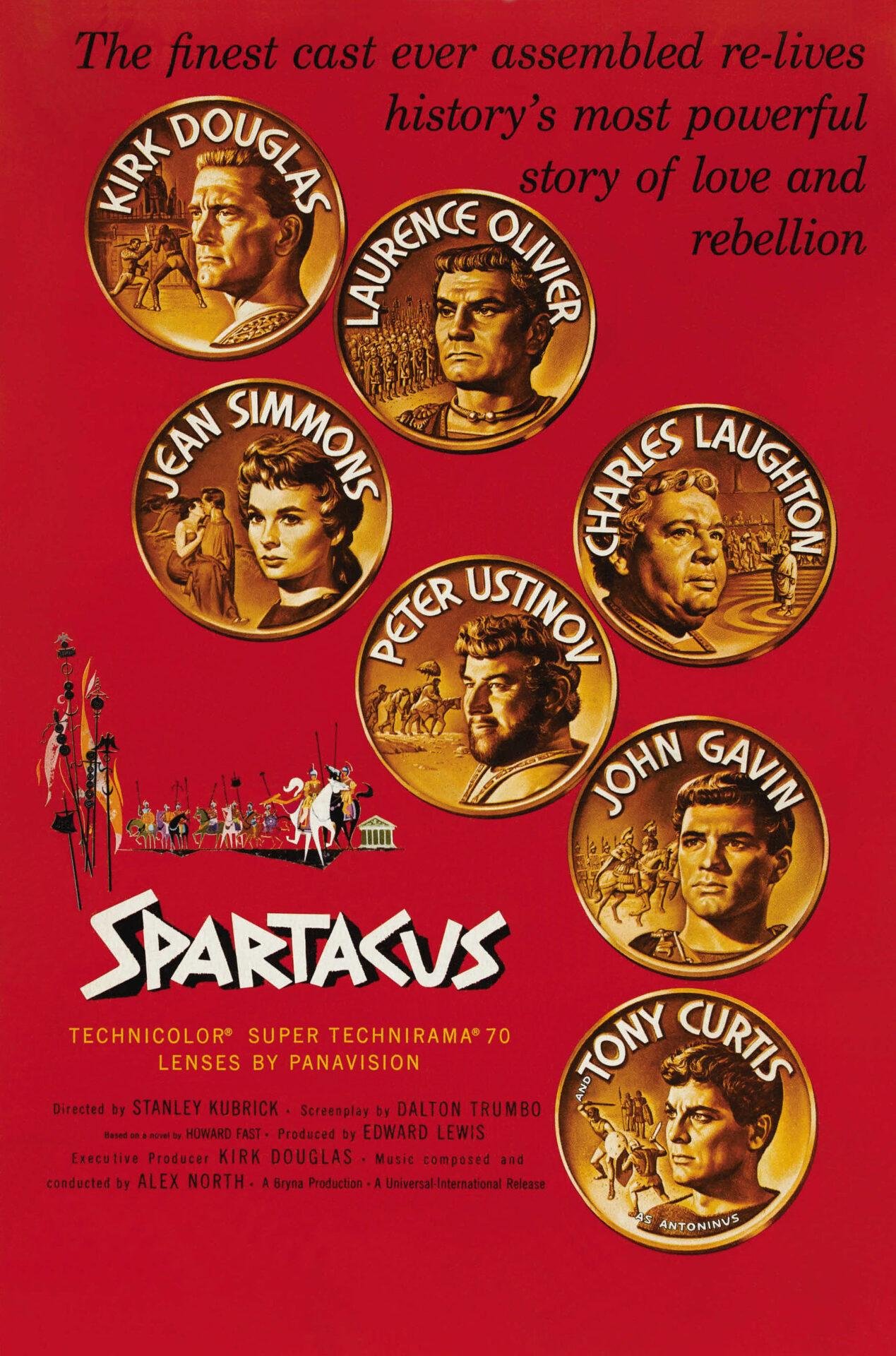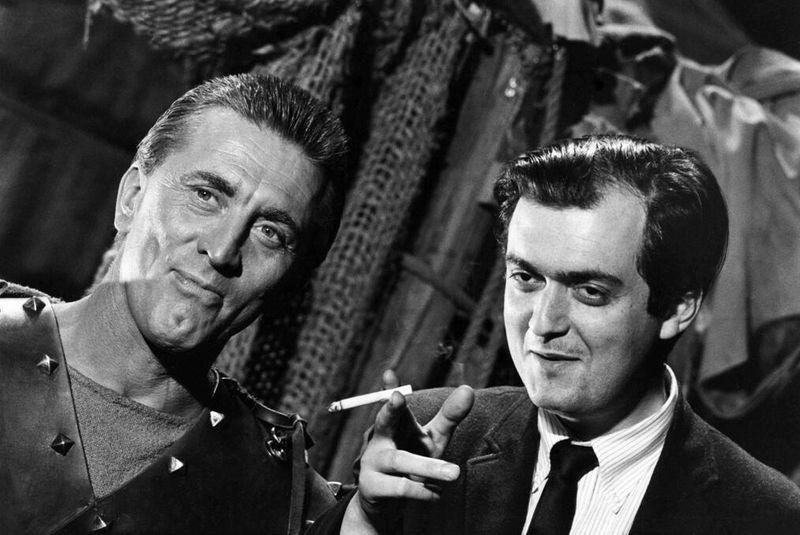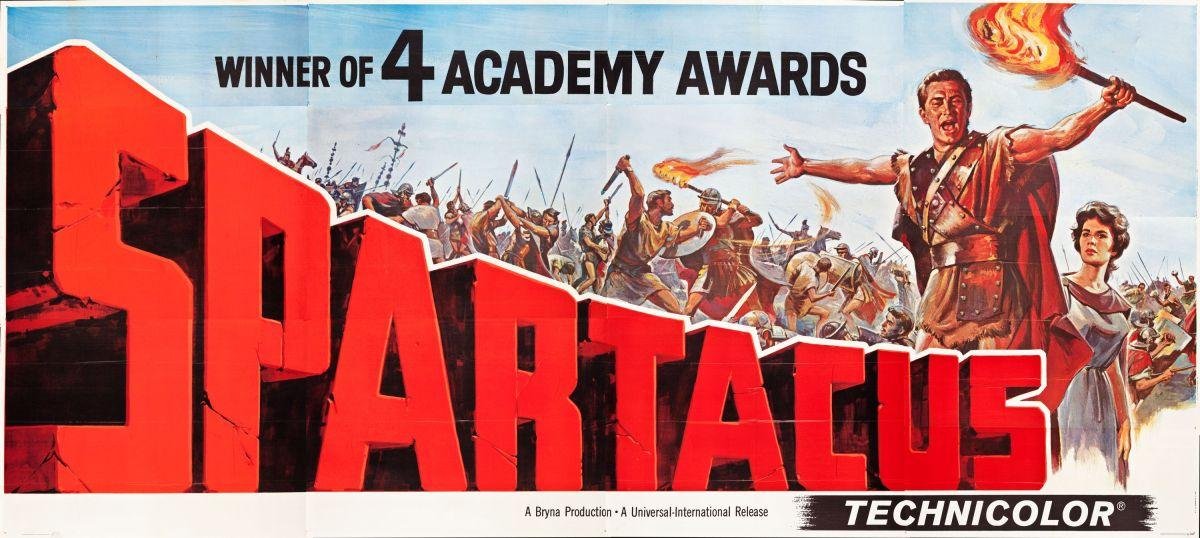Spartacus: A Groundbreaking Epic That Revolutionized Cinema for Generations to Come
Get ready to go back in time to the Roman Empire with one of the most iconic and influential films of all time: Spartacus. Directed by legendary filmmaker Stanley Kubrick and starring Kirk Douglas, this epic historical drama broke new ground in cinema and impacted generations of filmmakers to come. Join me as we delve into the world of Spartacus, analyze its unique storytelling techniques, and discover what makes it a timeless classic that still captivates audiences today.
Get ready to go back in time to the Roman Empire with one of the most iconic and influential films of all time: Spartacus. Directed by legendary filmmaker Stanley Kubrick and starring Kirk Douglas, this epic historical drama broke new ground in cinema and impacted generations of filmmakers to come. Join me as we delve into the world of Spartacus, analyze its unique storytelling techniques, and discover what makes it a timeless classic that still captivates audiences today.

Introduction to the movie “Spartacus”
“Are you ready to travel back in time to the ancient Roman Republic? Then buckle up and get ready to be transported to 73 BC with “Spartacus”! Directed by Stanley Kubrick, this historical epic takes us on a journey through the life of a gladiator and slave who ultimately leads a rebellion against the powerful Roman Empire. Starring Kirk Douglas as Spartacus, this film is a must-see for anyone interested in history, action, and drama. Join me as we dive deeper into the characters, plot, and themes of this cinematic masterpiece.”
Historical context of the story
To fully understand the impact of the “Spartacus” film, it’s important to consider the historical context in which it was produced. The film was released in 1960, during a period of social and political upheaval in the United States. The Civil Rights movement was gaining momentum, and the Cold War was at its height. Against this backdrop, “Spartacus” was a powerful statement on the struggle for freedom and equality. The film’s depiction of slavery and rebellion resonated deeply with audiences, and its themes continue to be relevant today. In this article, we will delve deeper into the historical context of “Spartacus” and explore its enduring legacy in the world of cinema.
Analysis of the main characters
In the film “Spartacus”, the main characters are portrayed with depth and complexity, which adds to the overall appeal of the movie. Spartacus, played by Kirk Douglas, is a slave who becomes a leader of a rebellion against the Roman Empire. He is portrayed as a strong and noble character, willing to fight for his freedom and the freedom of his fellow slaves. The character of Crassus, played by Laurence Olivier, is the main antagonist of the film. He is a powerful Roman senator who seeks to crush the rebellion and maintain his power. Both characters are well-developed and provide a great contrast to each other. The analysis of these characters adds a layer of understanding to the film and makes it an even more enjoyable experience.

Themes explored in the movie
The Spartacus film explores themes such as freedom, slavery, and rebellion. The story follows the life of a slave who becomes a gladiator and leads a revolt against the oppressive Roman Empire. The movie also delves into the complex relationships among the characters, including Spartacus’ love interest and his conflicting loyalty to his fellow rebels. Additionally, the film portrays the brutal violence and political intrigue of the era. Overall, Spartacus is a timeless epic that continues to resonate with audiences for its timeless themes and unforgettable performances.
Cinematography and visual effects
The 1960 epic historical drama film “Spartacus” is a masterpiece in terms of cinematography and visual effects. The film was shot using the then-revolutionary technology of Technirama, which allowed for a wider aspect ratio and higher resolution. The battle scenes were expertly choreographed and filmed, with the use of practical effects such as real-life explosions and stunt performers. The production design and art direction were also top-notch, creating a believable and immersive world of ancient Rome. The use of matte paintings and miniature models for certain shots enhanced the grandeur of the film, making it a timeless classic in cinematic history.
Soundtrack and music
Soundtrack and music are an integral part of any film and can either make or break the overall experience. In the case of “Spartacus,” the music plays a pivotal role in setting the mood and enhancing the emotions portrayed on screen. Composed by Alex North, the score features grand and sweeping orchestral pieces that perfectly capture the epic nature of the film. The iconic “Love Theme” is perhaps the most memorable piece of music from the movie, and its haunting melody has been referenced in numerous other movies and TV shows. The soundtrack of “Spartacus” is a testament to the importance of music in cinema and its ability to elevate a film to a whole new level.

Symbolism and imagery in the film
Symbolism and imagery play a pivotal role in the 1960 classic “Spartacus.” The film’s director, Stanley Kubrick, uses various motifs throughout the movie to convey deeper meanings and messages. For instance, the color red is used to symbolize the bloodshed that takes place during the gladiatorial battles. Similarly, the use of shadows and lighting is used to create an ominous tone during tense moments. Additionally, the imagery of the Roman Empire is utilized to highlight the brutality and corruption of the ruling class. Overall, the symbolism and imagery in “Spartacus” help to enhance the film’s themes of freedom, rebellion, and justice.
Comparison to other historical epics
When it comes to historical epics, Spartacus stands out as one of the most monumental films of its time. Its attention to detail, impressive battle scenes, and gripping story of rebellion and freedom have earned it a place among the greats. Compared to similar films like Ben-Hur and The Ten Commandments, Spartacus is known for its more humanistic approach, exploring the emotional and psychological toll that oppression and resistance can have on individuals. Its standout performances, particularly by Kirk Douglas in the titular role, also set it apart. Overall, Spartacus remains a must-see for fans of historical epics and cinema lovers alike.
Reception and impact of the movie
The reception and impact of the movie “Spartacus” has been significant in the world of cinema. Directed by Stanley Kubrick and starring Kirk Douglas, the film was released in 1960 and received critical acclaim for its compelling storyline, breathtaking visuals, and fantastic performances. It was a groundbreaking movie that challenged the social and political norms of its time. Its message of freedom and equality resonated with audiences worldwide, making it a box office success. “Spartacus” has had a lasting impact on cinema, inspiring many filmmakers to explore similar themes in their work. It remains a classic and beloved film to this day.
Conclusion and final thoughts on the significance of “Spartacus” in cinema history
In conclusion, it is without a doubt that “Spartacus” holds a significant place in cinema history. The film showcases an epic tale of rebellion and freedom, featuring a stellar cast and groundbreaking cinematography. Its release in 1960 marked a turning point in Hollywood‘s approach to historical epics, as it challenged the traditional portrayals of heroes and villains. Moreover, “Spartacus” has proved to be a timeless classic, with its themes of oppression and human endurance remaining relevant to this day. It is a testament to the artistry and vision of director Stanley Kubrick and the incredible talents of the entire cast and crew. Overall, “Spartacus” is a must-watch for any cinephile and a true masterpiece of cinema.
For more information about Spartacus film analysis, including movie details, cast information, etc..
check out the filmaffinity page.



